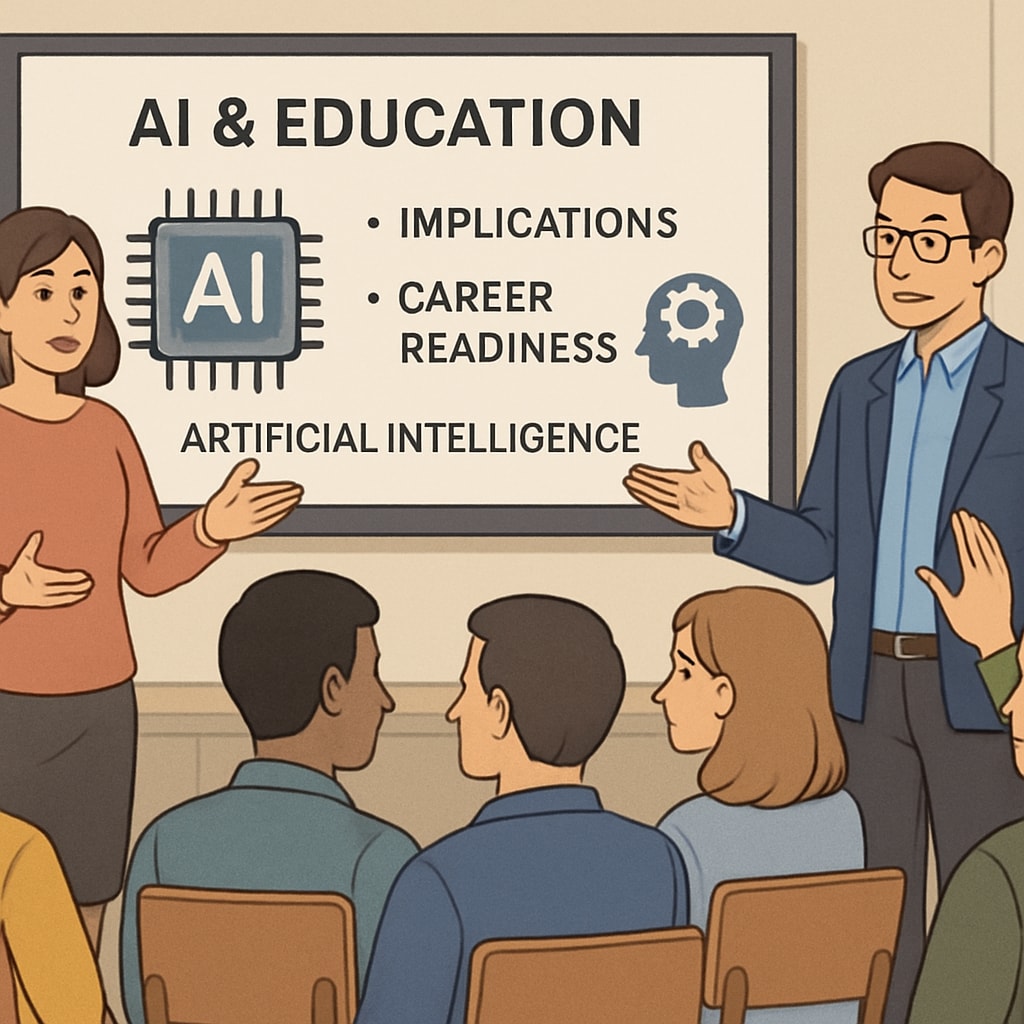Artificial intelligence (AI) is transforming industries at an unprecedented pace, raising concerns about its impact on higher education and future career opportunities. Parents and educators are increasingly anxious about preparing children for a world where AI might replace traditional jobs and even influence the value of college degrees. This article explores how K-12 education can serve as a foundation for equipping children with skills that AI cannot easily replicate, such as critical thinking, creativity, and emotional intelligence, to secure their future in an AI-dominated world.
The Challenge of AI in Education and Employment
As AI systems become more sophisticated, they are capable of automating tasks once reserved for highly-skilled professionals. For example, AI algorithms can now write code, analyze data, and even diagnose medical conditions with remarkable accuracy. This raises a critical question: what will remain uniquely human in the workforce? According to a report by Britannica, creativity, interpersonal skills, and ethical reasoning are areas where AI continues to fall short.
Higher education institutions are grappling with this shift. Degrees in fields heavily reliant on routine tasks, such as accounting or journalism, risk becoming less valuable as AI encroaches upon these professions. The challenge for K-12 education is to address this growing uncertainty by fostering skills that complement rather than compete with AI capabilities.

Redefining K-12 Education for the AI Era
To prepare children for an AI-driven future, K-12 education must evolve. Traditional teaching methods focused on rote memorization and standardized testing may no longer suffice. Instead, schools should prioritize the following approaches:
- Critical Thinking: Developing the ability to analyze, question, and interpret information critically helps students navigate complex problems AI cannot easily solve.
- Creativity: Encouraging original thought and innovative problem-solving nurtures skills that AI struggles to replicate.
- Emotional Intelligence (EQ): Building interpersonal skills, empathy, and teamwork prepares children for roles requiring human connection.
For example, project-based learning (PBL) and interdisciplinary studies can foster these competencies. A student tasked with designing a sustainable city in a geography class not only learns technical concepts but also hones creativity and teamwork. This holistic approach ensures that children possess the adaptability to thrive alongside AI technologies.
Supporting Parents and Educators Amidst Education Anxiety
Parents and educators often feel overwhelmed by the rapid changes brought about by AI, fearing that traditional education may no longer guarantee career success. To alleviate these concerns, schools and communities can implement the following strategies:
- Parent Workshops: Offering sessions on the future of work and education trends helps parents understand how to guide their children effectively.
- Educator Training: Providing teachers with resources on integrating AI-aware curriculums ensures students are prepared for emerging challenges.
- Collaborative Learning: Encouraging partnerships between schools and tech companies introduces students to real-world applications of AI.
By involving parents and educators in the conversation, schools can foster a sense of shared responsibility for preparing children for the future. As highlighted by Wikipedia’s article on the future of work, collaboration between stakeholders is essential to address the uncertainties posed by AI advancements.

In conclusion, while the rapid growth of AI poses challenges to traditional education and career pathways, it also offers opportunities to rethink how we prepare the next generation. By redefining K-12 education to prioritize critical thinking, creativity, and emotional intelligence, parents and educators can ensure that children are equipped to excel in an AI-dominated world. Embracing change and fostering innovation within education will not only alleviate fears but also empower students to thrive in the future workforce.


